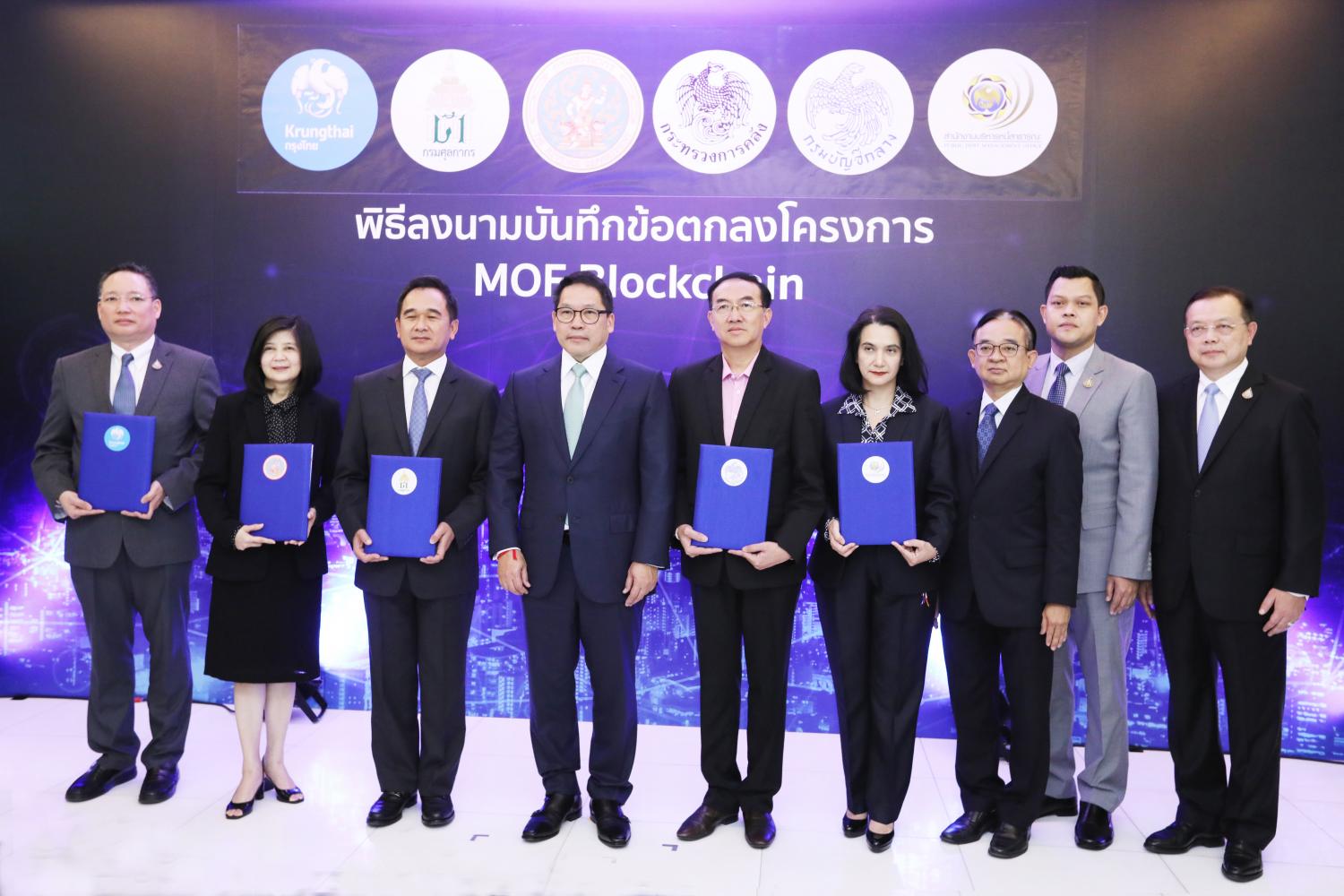The Finance Ministry plans to adopt blockchain-based value-added tax (VAT) refund service for foreign tourists, starting from the end of this month.
The blockchain technology for VAT refunds should speed up the process for tourists as details of their purchases will be immediately shared with the Revenue Department and the Customs Department once shops key in the information in the system, said Finance Minister Uttama Savanayana after signing a memorandum of understanding along with Krungthai Bank to apply the technology in three pilot projects.
Foreign tourists will be able to claim VAT refunds via an application from Nov 28. They are required to identify the channel such as credit card or WeChat from which they want to receive the money back, he said.
At least 2 million foreign tourists purchase goods and services in Thailand, amounting to 50 billion baht a year. An average of 200,000 tourists a month claim a VAT refund, 70% of whom are Chinese travellers who do not like to hold cash, said Mr Uttama.
Blockchain technology can reduce the document verification process and the use of 10 million sheets of paper a year, lower cash management costs and slash congestion at VAT refund counters.
The blockchain-based VAT refund service can automatically approve such claims if the purchase amount is insignificant, said a source familiar with the issue, without specifying an amount.
The VAT refund for foreign tourists is one of three projects that have adopted blockchain technology. The others are scripless savings bond issuance and letters of credit (LC) for electronic procurement.
The Public Debt Management Office plans to allow people to download Bond Direct applications to purchase savings bonds, with values starting from one baht, said Mr Uttama. The first savings bond issuance available through the app is scheduled to be sold in May 2020.
With blockchain technology, people can conveniently access savings bond subscriptions and shorten the scripless bond issuance process to two days from 15 days at present.
The process for blockchain-based LC issuance for state procurement will be streamlined to inspect collateral put up by bidders and build up confidence about collateral security.
The ministry is encouraging agencies under its direction to adopt blockchain technology.

